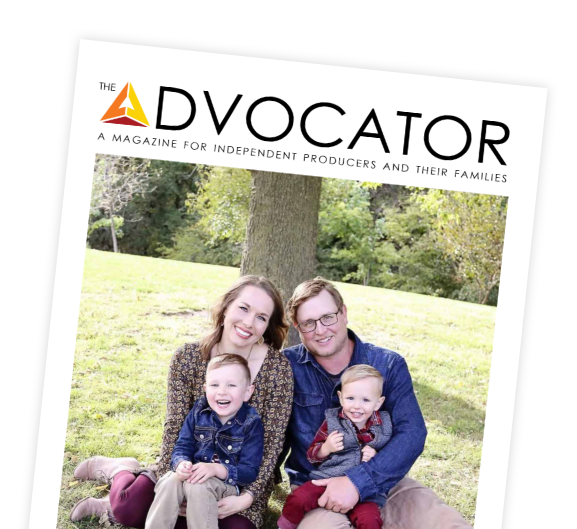I’ve often said that I enjoy working with various producers from all types of facilities, backgrounds, goals, and opportunities. I feel that it is one of the best parts of my position. When considering swine medicine, as with any other species, starting healthy and clean is ideal, yet not always feasible. We must work with the health status and facilities we have today. More importantly, we should focus on consistently preventing or minimizing new issues. This will lead to more consistent success. While working with various producers, growers, owners, and farm staff over the last few years, I have had the pleasure of interacting and learning from everyone. Meanwhile, I have cultivated effective ways to relay the most pertinent information or “low-hanging fruit” for each situation. This was based on knowledge of the situation, previous experiences, rigorous scientific evidence, data, and opportunities for improvement. At the same time, I have seen several common traits among successful producers.
I want to highlight below what I have seen when setting up a farm or production system for long-term success for their farm. The following is a collection of traits, questions, and examples of situations with “buzz words” highlighted for those that would like to skip out on reading complete sentences.
• Producers who are proactive in preventing issues. They ask the “what ifs?” “What can I do, or do better, to prevent this?” “Let’s make a backup plan in the case of a PRRS break upstream, downstream, or across the road.” Producers see neighbors or others with issues or anticipate what they will be dealing with and what is likely to come. Where is our most significant risk to bringing PED to our farm, and what are our best methods for reducing that risk?”
• Producers who take control before a situation arises. They determine what is within their abilities and what is beyond their control. “I’ve got PRRS+ pigs coming NEXT week; what can we do to manage the situation?”
• In addition to taking control, successful operators work at being prepared ahead of time, especially in more complex or fragile production systems or stages of production. By regularly cross-training employees or family members, operations see smooth continuity during those sick/holiday/emergency situations. “I’ll be gone fishing next week, so four days before I left, I spent a full half day with my brother training him how I run my nursery pigs.” “I know that every month I need XYZ, so because of the current supply chain situation, I am going to stock 1 or 2 months extra of these key products I can’t succeed without.”
• Producers that surround themselves with the right team of experts: One of the best things about working with Sioux Nation Ag Center is the breadth and depth of our multi-species experts, including nutritionists, vets, technical support, and sales specialists. I don’t claim to have all the answers, nor should I, but I likely have a number or two in my phone to reach out to and get answers. These are contacts inside the company and in the ag industry; our highly skilled team also has those contacts. In today’s modern, fast-paced world, keeping up with all available information is like trying to drink water from a fire hydrant.
• Successful producers and businesses alike take advantage of the experts in their team to help evaluate and appropriately use the right data for their system. “I’ve been talking to a salesman who claims he has a silver bullet for xyz; what do you know about it, and would it work for me?”
• Producers that explore, understand, and address their weaknesses, risks, and threats in their current situation. They ask what they can do to best minimize and address those threats. They also understand and lean into strengths, capitalizing on the advantages in their production system.
• Producers who continue to ask questions, challenge the status quo and learn and explore. They bring flexibility to their thought processes and future potential plans and are open to new ideas and opportunities as they present themselves.
• Communication between stakeholders is essential in today’s complex world. Consider not only what is communicated; examine how the communication takes place within various options, including text, email, phone call, and in-person visits. Ask yourself, “Did what I say really make sense?” Did it make sense in a text? Call and confirm! Are you having difficulty understanding an email? Send a text or a call! Does the person receiving information know WHY they are being told to do a task? While training a newbie, does the person who is performing the work understand how critical it is for them to administer the entire dose of PCV2 vaccine into each pig, each time and not rush through to get to lunch earlier? Do they understand that if they perform their job sub-par, someone in finishing will see the consequences down the road? Taking time to instill the importance of even the most mundane tasks helps instill the importance of a job well done.
• Producers who follow through and assess interventions critically see better results. Records and data are essential to review if the interventions made had an impact. Logging information takes time, yet without written verification, we cannot prove an interaction ever happened. Accuracy is everything when working with data, and attempting to record information is better than nothing. “Last turn six months ago we did XYZ on day 5, but my records show that issues started on day 4, and we didn’t do ABC a month later, and this was our result, so this time should we change this around and do XYZ without skipping the ABC?”
In reality, anyone still reading to this point has proven to be successful. I hope by sharing some of these unique (but generalized for this audience) experiences, there may be some new take-aways to consider and implement for success in the long term.
